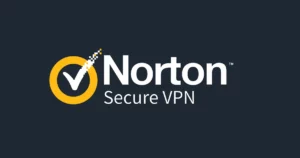Best Virtual Private Network software
Our Virtual Private Network guide includes some of the best VPNs for businesses, including ExpressVPN, NordVPN, ProtonVPN, and Windscripe
What to look for in a VPN
Ease of use: A good VPN is easy to use. Setting up and using the VPN should be simple and intuitive. The user interface should be neatly designed and easy to navigate. Learning how to use a complicated VPN is time-consuming and frustrating.
Security: A VPN’s job is to protect your digital privacy. That’s why many providers prioritize security technology. Most VPNs use AES-256 encryption, which is an encryption algorithm that converts plain text or data into a cipher. This makes it harder for hackers or ad trackers to breach your network. Another security feature to look for is open-source software. This is software that is accessible to the public. Anyone can view, edit, or distribute the software’s source code. Since more people can view and modify the software, there is a better chance of someone finding and correcting a mistake. Open-source applications are also updated more frequently. This means the application’s security features are…
Features: Many VPNs have numerous features. Some essential features to look for include split tunnelling, kill switch, IP shuffling, and leak protection. Providers might also have additional features like a threat manager or speed tests.
Server locations: VPNs differ in how many server locations they have. Some have more than others. Look for a VPN that has servers in 60-90 countries. There should also be several server locations within the countries. For example, NordVPN has servers in 15 U.S. cities.
Compatibility: While VPNs are primarily used for desktop computers, they can also be installed on smartphones, tablets, and laptops. The VPN you choose should be compatible with these devices. The VPN should also work on multiple operating systems like Android, iOS, Mac, and Windows.
Pricing: The average price for a standard VPN account is $9 – $12 per month. Many providers offer yearly or biannual billing. While the upfront cost is higher, you end up saving more money in the long run. Free VPNs are rare but are available. However, they lack advanced features and have restrictions such as a bandwidth limit and fewer server locations. Free trials for VPNs are virtually non-existent. However, most offer a 30-day money-back guarantee.

Absolute Secure Access

Surfshark

Norton Secure VPN
TunnelBear
What is a VPN, what does it do and how does it work?
A VPN is an application that creates a secure connection between your device and your network. Many people use VPNs to disguise their online identity. To protect your digital identity, a VPN takes your IP address and redirects it through a remote server run by a VPN host. The VPN server becomes your new data source. In other words, connecting to a VPN server located in Hamburg, Germany means your IP address will appear as if it is based in that location.
What are the types of VPNs?
There are three main types of VPNs.
The first is called an SSL (secure sockets layer) VPN. It enables users to access an organization’s network and applications without the need for specialized software. It is mainly used by remote workers who want to protect their own and their company’s identity when accessing sensitive documents.
Site-to-site VPNs hide private intranets and allow the users of these networks to access each other’s resources. Large companies with multiple locations typically use site-to-site VPNs. They are also used by people who have two separate intranets. One disadvantage of site-to-site VPNs is that they are difficult to set up and are less flexible than SSL VPNs.
The last type of VPN is a client-to-server VPN. This type is also used by remote workers to connect their home computers to their organization’s network. First, a VPN client is installed and configured on the user’s computer. The user establishes a direct connection to the company network via their VPN client. The advantage of client-to-sever VPNs is their efficiency. Plus, employees get secure success with company resources. A remote worker can act as if they were sitting in the office.
What are the benefits of a VPN?
The main benefit of a VPN is that it protects your digital privacy. By disguising your IP address, ad trackers and hackers cannot access your browsing data. If you work from home, a VPN lets you securely connect to your company’s network. This lowers the chance of data leaks. VPNs also let you access geo-restricted content. For example, a show you want to watch is only available on the U.S. version of Netflix. Simply set your VPN location to a U.S. city to view the show. Some countries have restrictions for the internet. If you live in one of those countries, a VPN can get you unrestricted access to the internet.
What are the disadvantages of a VPN?
VPNs do not have many disadvantages. However, they can be expensive. As mentioned earlier, the price per month can fall between $9-12. A year’s subscription can cost up to $200. Some providers offer free plans but are limited in what they can do. Another drawback of a VPN is that it can slow down your internet connection. The difference may not be noticeable, but there are times when speeds are slowed significantly.
Is a VPN worth it?
If you care about protecting your digital privacy, then a VPN is worth it. With a VPN, your personal data is safeguarded from hackers, advertisers, ISPs, and other third parties. You can access region-specific content or blocked websites. For remote workers, VPNs establish a secure connection between your home computer and your organization’s network. Lastly, VPNs protect your privacy when your device is connected to public Wi-Fi.
What are the typical features of a VPN?
A VPN has numerous features. While there are too many to mention, here are some notable ones:
- Kill switch: If your VPN connection gets interrupted, the kill switch halts all internet traffic. This prevents your IP address and personal information from being exposed. Once the VPN connection is restored, the internet access is restored.
- No logs policy: To further protect your online identity, a VPN will have a no logs policy. This means that the VPN will not collect personal data like your IP address, browsing history, or DNS queries.
- Split tunnelling: With this feature, a VPN routes some of your device’s or application’s traffic through an encrypted VPN tunnel. The other traffic comes directly from the internet. This feature comes in handy when you want to access foreign and local internet services simultaneously. Split tunnelling also helps you save bandwidth and improve connection speeds.
- Private DNS: DNS (Domain Name System) is a system that houses all websites and services. When entering a new URL, your computer asks a DNS server to find the corresponding IP address. DNS servers know which sites you visit and which servers you use. Some DNS services build profiles of their users and sell them to advertisers. A private DNS prevents third parties from accessing your personal data.
What are some alternatives to VPNs?
If you decide that VPNs do not fit your budget, there are affordable alternatives.
A proxy is a program that acts as a mediator between your device and the internet. They are effective in unblocking low-security sites, but they do a poor job in other areas. Proxies do not have encryption, which makes them vulnerable to data breaches. The main advantage of proxies is they’re free to use.
An SSH tunnel encrypts your connection just like a VPN does, but it does not change your IP address. Therefore, you won’t be able to bypass website blocks. Still, an SSH tunnel can securely transfer your data. On the downside, they can be challenging to set up.
One of the best VPN alternatives is Tor, also known as The Onion Router. Tor uses a large network of servers located across the world to bounce your connection around. This means no single server stores your data. VPNs differ in that they route your connection to a single server. If you are worried about a VPN possibly collecting your data, Tor is the perfect alternative. It combines security with anonymity. Unfortunately, Tor is slow and struggles with overcoming certain website blocks.



